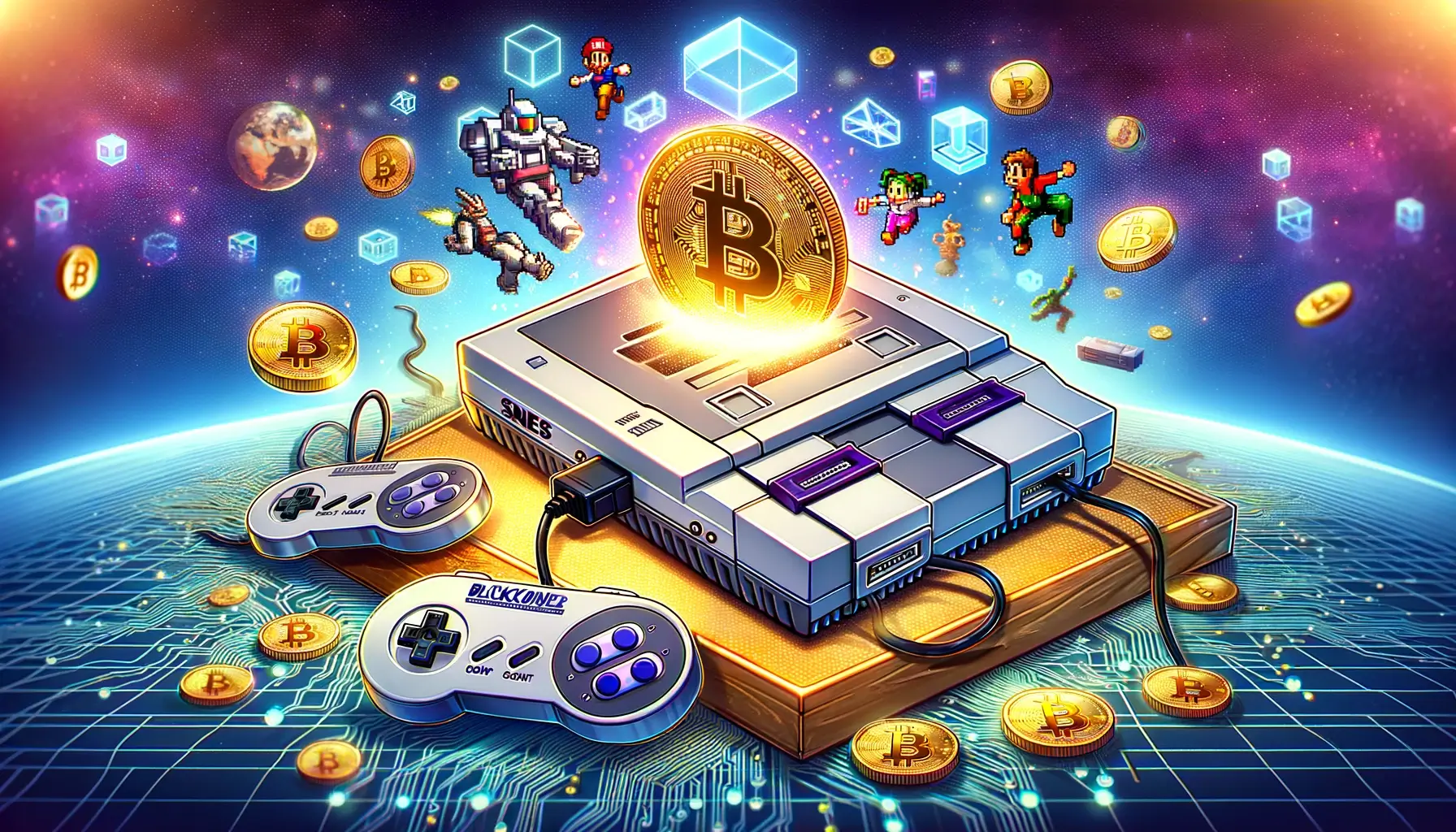The Bitcoin blockchain, known for its robust security and decentralization, has recently become the unlikely home for classic Super Nintendo Entertainment System (SNES) games, thanks to an innovative project by the team at Ninjalerts.
This venture sees the integration of a customized SNES emulator directly onto the blockchain, marking a unique intersection of cryptocurrency and retro gaming.
Classic Gaming Meets Modern Blockchain
Ninjalerts, a company renowned for its Bitcoin Ordinals portfolio tracker, has successfully inscribed an SNES emulator onto a single satoshi.
This development allows users to relive classic video games through the Bitcoin network, introducing a novel use case for blockchain technology.
Ninjalerts CEO Trevor Owens shared insights into the project’s goals and the technical journey on X (formerly Twitter), emphasizing the six-month effort to adapt the emulator for seamless functionality across various platforms.
“If the Laser Eyes are gonna host all our JPEGs forever, at least now they can play games!”
1/ We Inscribed the Super Nintendo on Bitcoin 🎮
I'm happy to announce, our GitBook is officially live!
88 pages of content (with images and code)
Let's dive in, and discuss our attempt to raise the technical bar for Ordinals projects going forward🧵👇 pic.twitter.com/G0EpU38aE2
— trevor.btc (@TO) January 8, 2024
Owens highlights the primary motivation behind this endeavor: the preservation of classic video games, many of which are at risk of being lost to time. A study cited by Owens suggests that 90% of classic games face a critical risk of extinction, prompting the Ninjalerts team to turn to the Bitcoin blockchain as a sanctuary for these cultural digital artifacts.
Raising the Technical Bar for Bitcoin Ordinals
By inscribing the SNES emulator on Bitcoin, Ninjalerts not only seeks to preserve gaming history but also aims to elevate the technical standards of Bitcoin Ordinals projects. Owens expresses a desire to explore the full potential of Ordinals, achieving feats that may prove more challenging on other networks, such as Ethereum.
The project’s complexity and ambition are detailed in an 88-page GitBook shared by Owens, which includes images, code, and a thorough walkthrough of the emulator’s integration onto the blockchain.
Community Reactions: A Spectrum of Opinions
The Bitcoin community’s response to this groundbreaking project has been mixed. Some users celebrate the advancement as a leap forward in Ordinals’ versatility and entertainment value, dubbing it “Ordinals season two.”
However, concerns have been raised regarding the copyright implications of hosting games on the Bitcoin network, with some community members speculating about potential legal repercussions.

